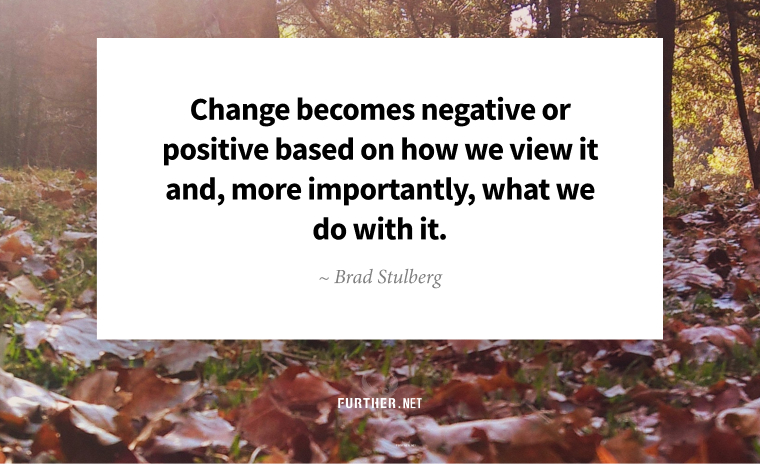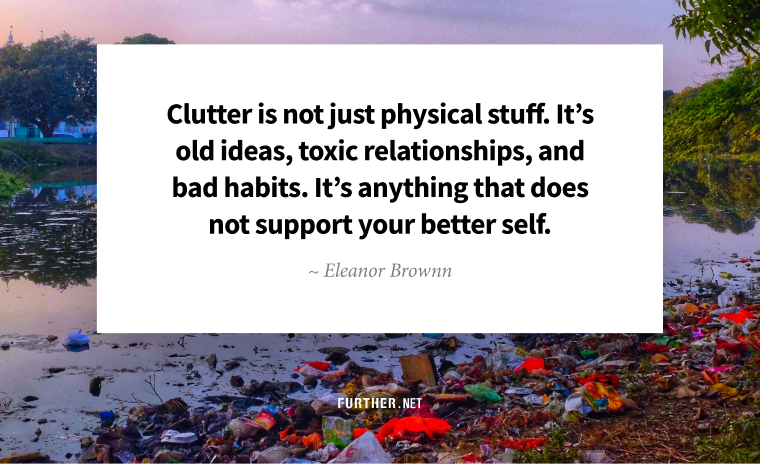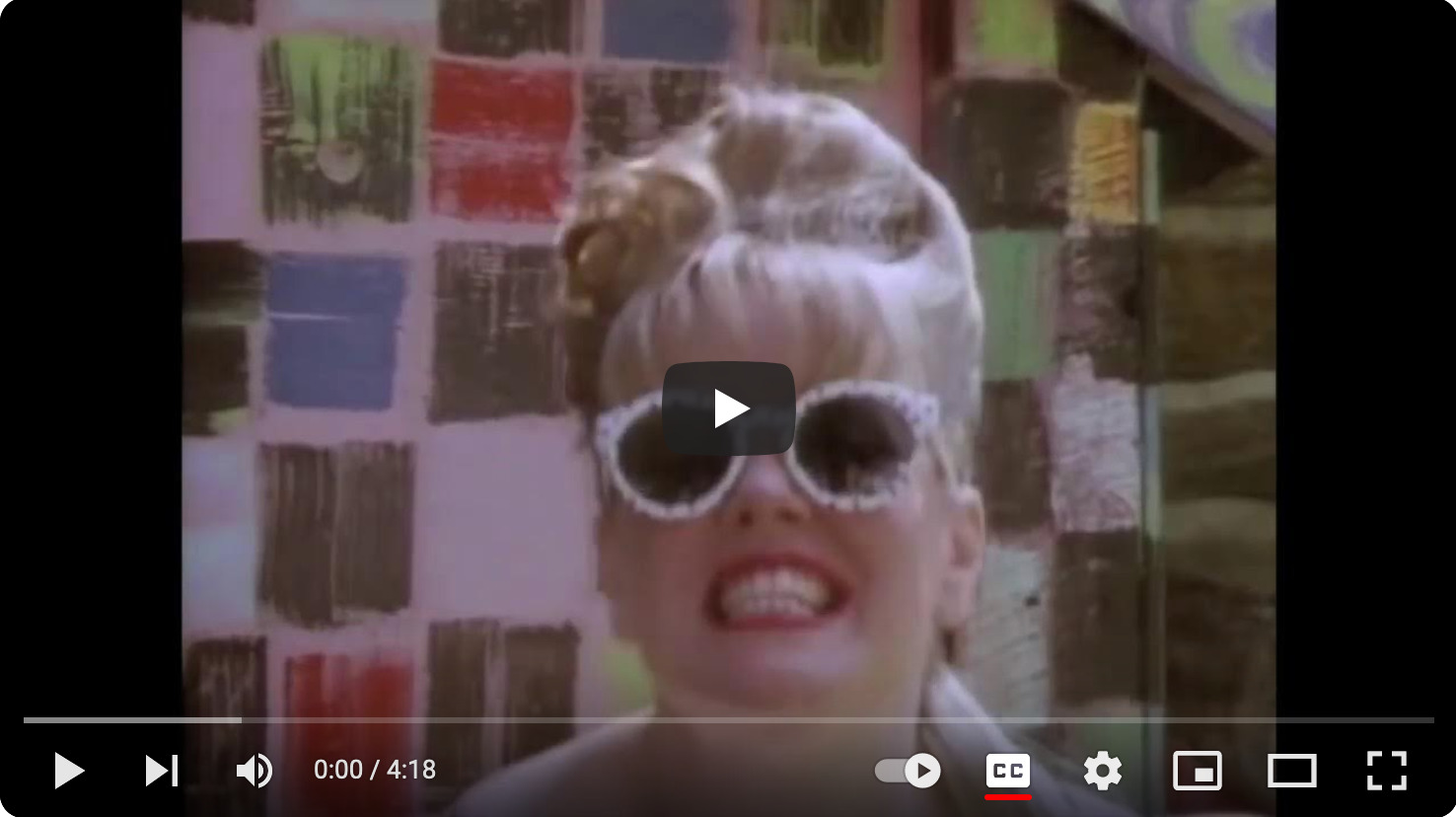
By now you’re familiar with the midlife transition, or as we like to call it, midlife dissatisfaction. Not quite a crisis, but certainly a vague sense of discontent.
In other words, you’re less-than-happy in your forties. But then 50 comes around, and according to research, things start to turn around and keep going in a positive direction for decades.
In my own experience, I think this stems from the nagging feeling that things need to change. We begin to realize this in our forties, which is usually the height of how we’ve defined success. The result is cognitive dissonance, because why would we want to change things when we’re experiencing the fruits of what we’ve been working for?
Isn’t that what people think of as the mythical midlife crisis after all? Our culture tells us that stability is what’s most important, and yet the only thing you can count on is change.
So we resist, and the discontent sets in.
Then things get better around 50, perhaps because we let go of the dissonance. Just because we might want to do something different going forward doesn’t invalidate what we’ve accomplished in the past. It’s just that our priorities change as we get older, and the status signifiers and material acquisition that drove us when we were younger aren’t as important.
This is an example of non-dual thinking, which is the opposite of a black-and-white perspective. You used to want certain things, you got them, and now you want different things. Both are true at the same time without any conflict.
In your forties, perhaps you felt the desire for change, and that made you uncomfortable. As one gets a bit older, well-adjusted people realize that life is change. And the most prominent change that is driving everything is the process of getting older itself, the most inevitable form of change.
This is what ran though my head as I started reading Master of Change, the new book from Brad Stulberg. Change is not only inevitable, it’s often beneficial and sometimes transformational in the best of ways. The difference between being overwhelmed by change and embracing it as a positive is all in how you think about it:
The latest findings from psychology, biology, sociology, philosophy, and cutting-edge neuroscience all demonstrate that change itself is neutral. It becomes negative or positive based on how we view it and, more importantly, what we do with it.
If you’re a student of ancient philosophies such as Buddhism, Stoicism, or Taoism, you recognize the familiar essence of that particular bit of wisdom. If not, you can get there with Stulberg’s concept of rugged flexibility, another example of non-dual thinking.
To be rugged is to be tough, determined, and durable. To be flexible is to consciously respond to altered circumstances or conditions, to adapt and bend easily without breaking. Put those together and the result is a gritty endurance, an anti-fragility that not only withstands change, but thrives in its midst.
The key idea is that there is no such thing as static stability in the face of constant change. You’re never going to be able to keep things as they are, and you’re not going to get back to what was by resisting change. But if you embrace change on your own terms with rugged flexibility, you can re-order your life in a better, more satisfying way than what you had previously.
In other words, you remain fundamentally you. You’re just the version of you that you need (and want) to be right now and going forward. And isn’t that what we’re all after?
Further Exploration:
Master of Change: How to Excel When Everything Is Changing – Including You (Amazon)
Keep going-
P.S. New to Further? Join us here.
Electrolyte Orchestra
So you started drinking more water. Good. But then someone told you that doesn’t give you the electrolytes you need. That’s true. But there are better ways to get sodium, potassium, chloride, and magnesium into your body than many of the quick-fix electrolyte powders.
Drinking Electrolyte Powder May Not be Good for You, Experts Say
Mind Your Health
Ever had an experience where your mind seemed to affect your health? It turns out there’s a reason for that, according to the author of the new book The Mindful Body. Your mind is not separate from your physiology, and changing your mindset in various ways can lead to a happier, healthier life.
The Surprising Ways Your Mind Influences Your Health
House Poor
Odds are the house you’re in now isn’t the house you’ll have at, well, the end. But the idea of passing on whatever you’re in at the time to your kids might seem attractive, given the current state of home affordability. Turns out you may want to think twice.
Why Houses Make for Terrible Wealth Transfer Vehicles
Gained in Translation
“Besides altering the quality of our memories, switching between languages can influence people’s financial decision-making and their appraisal of moral dilemmas. By speaking a second language, we can even become more rational, more open-minded and better equipped to deal with uncertainty.”
How Thinking in a Foreign Language Improves Decision-Making
Prepare for Your Next Adventure by Ditching Emotional Baggage

By Trudi Roth
The US home organization industry is $12B annually and rapidly growing. After all, we’ve been led to believe tidying up works life-changing, joy-sparking magic, thanks largely to Marie Kondo.
While getting rid of stuff can bring some degree of calm, it doesn’t necessarily provide the assumed emotional clean-sweep. As clarity coach Sara Valverde explains:
Contrary to popular belief, when you are free of physical clutter, it doesn’t become rainbows and unicorns, an idea to which many TV shows and books allude. What happens is that what isn’t working in your life gets amplified. Like the surface of a lake clearing after a hard rainfall, clarity rises to the surface of your consciousness about certain things.
I felt this recently when a summer-long purge left me feeling adrift. When tidying up sparks sadness, you know you’ve got some inner excavation work to do.
Unpacking Emotional Baggage
Decluttering is a mindful practice, forcing you to take a good look at your stuff. And by “stuff,” I mean a lifetime of experiences and habituated thoughts, including failures, dashed dreams, grief, and self-limiting beliefs. Research shows that this really gets us thinking.
The brain region that activates when people are processing things related to the self was shown to also be activated by things belonging to the self.
It’s not just physical junk bogging you down; it’s the outdated emotional, psychological, and spiritual clutter that’s taken up residence in your head and heart. The mindful act of sorting through your life can inspire clarifying thoughts about how to handle unfinished business, unresolved emotional conflicts, and regrets that weigh on you.
A Clean Conscious
If you plan on tidying your home or office, do it with intention. As you consider each item, ask yourself if it represents some old part of you — a wish, an identity, or a commitment. If so, when you let it go, release the emotional baggage you carry along with the object itself.
The good news about dumping things that no longer serve you is you don’t necessarily have to empty your closets or even one drawer. Valverde suggests a couple of additional ways to clear your internal decks:
- Journal about your emotional clutter. Consider all aspects of your life, including relationships, career, and health, as you write about unfinished business and things holding you back.
- Make a list of the values of your five closest friends/colleagues. If what you value doesn’t align with what they do, consider limiting the time spent together.
Just like you’re not going to empty a house full of old stuff in a day, it takes a while to dispose of your emotional clutter. But don’t trash the process — it’s the best way to clear a path to a happier, more purposeful you.
How to Clear the Emotional Clutter That Weighs You Down (Tiny Buddha)
further: flashback

The B-52’s – Love Shack
Cosmic Thing, 1989
Hearing Love Shack always brings me back to college, where the more decrepit the dive bar and the crappier the club, the better. The thing I knew even before college was there should be no apostrophe in B-52s since its not possessive (the band has since corrected it). I know, I’m lame. (YouTube)
further: sharing

Further subscribers who share the newsletter with friends can gain three months of access to our exclusive membership community Well + Wealthy with only five referrals. Get your own free weekly dose of health, wealth, travel, and happiness advice here, and find out all the details on our referral program.
Thank you for sharing Further!
